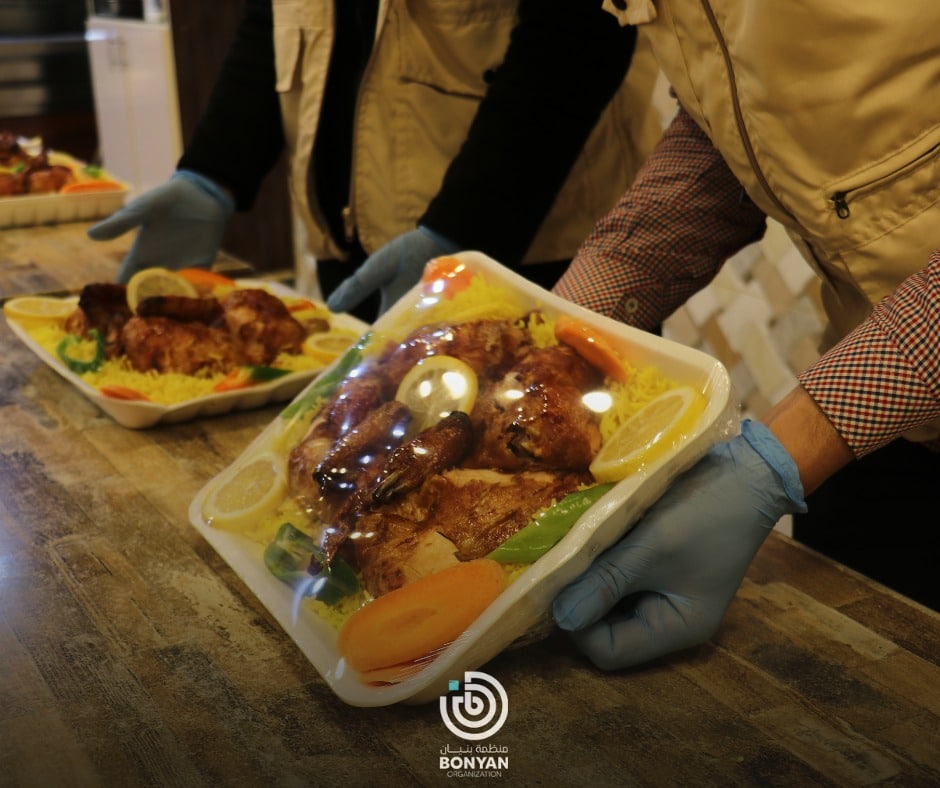As we are spending the holy month of Ramadan among our family members in the warmth of our homes, millions of refugees are spending this month in hardships and misery.
This is because these camps lack basic necessities, such as food, water, shelter, and electricity.
Thus, these refugees are in desperate need of our help, as this is our duty and responsibility toward our brothers and sisters.
Challenges Faced by Fasting Refugees in Refugee Camps
Fasting refugees face multiple challenges during Ramadan in their underserved refugee camps.
Below are some of these challenges:
- Lack of access to nutritious foods: Refugees have limited access to adequate, healthy meals to support their nutritional needs.
Thus, this makes it difficult for them to maintain a healthy regimen during non-fasting hours.
- The limited supply of safe water: Many refugees face difficulty finding sources of clean drinking water to quench their thirst during non-fasting hours.
- Health concerns: Refugees are at risk of contracting many physical and mental diseases, which might exacerbate the health risks of fasting.
- Insufficient access to health care: Due to the lack of proper medical facilities in the refugee camps, many refugees, especially those with chronic diseases, might face health complications while fasting.
- Environmental conditions: Refugees have no adequate access to the necessary means that could protect them against cold and hot weather conditions inside their camps.
Thus, it might be hard for them to maintain their fasting.
Importance of Providing Food Assistance during Ramadan
Islam encourages Muslims to support one another and care for each other. There are many Prophetic sayings (hadiths) that advocate the value of showing solidarity with our brothers and sisters and supporting them in their difficult times.
For example:
The Prophet (PBUH) said, “A believer to another believer is like a building whose different parts enforce each other“(Sahih al-Bukhari).
‘A’isha reported that the Prophet (PBUH), said, “Jibril, may Allah bless him and grant him peace, kept on recommending that I treat neighbors well until I thought that he would order me to treat them as my heirs“(Sahih, al-Albani).
Therefore, it is incumbent upon every believer to stand with refugees and support them as part of Islamic beliefs.
Since millions of refugees and displaced people face obstacles to finding nutritious meals to satiate their hunger, assisting them with iftar meals is a great act of support and solidarity.
The Reward of Feeding The Fasting Refugees
Indeed, one of the most crucial ways of support is through providing those in need with food.
Above all, helping other Muslims to break their fast during Ramadan by offering them food is one of the most rewarded acts of worship.
It was narrated from Zaid bin Khalid Al-Juhani that the Prophet (PBUH) said:
“Whoever gives food for a fasting person to break his fast, he will have a reward like theirs, without that detracting from their reward in the slightest” (Sunan Ibn Majah).
By supporting those in need to feed them, quench their thirst, and satisfy their hunger, we help fill their hearts with gratitude.

Donate to Reducing Hunger by Feeding The Fasting Refugees
Your charitable contributions and donations can now help feed several refugee families during the blessed month of Ramadan.
Help draw smiles on the faces of many refugees by providing them with nutritious iftar meals!
Your donations will be channeled toward providing those refugees with the following:
Food baskets
Food baskets are filled with different kinds of nutritious foods that can help refugees maintain their health during Ramadan.
Suhoor baskets
Suhoor baskets contain healthy, nutritional suhoor meals that help assist refugees in maintaining their fast during the day. Since the suhoor meal is a sunnah of the Prophet (PBUH), you will also help those refugees get the rewards of it.
Ready-to-cook kit
Many of the refugees have no access to food options. Therefore, the ready-to-cook kit will be a great option for them to cook iftar easily.
Cooked meals
Since refugee communities fall short of many cooking materials to prepare their meals, cooked meals will be an effective alternative for them.
Public iftar events
Holding public iftar events will help many refugees who have no access to food and water to break their fast.
Also, it will help them feel the vibes of this blessed month and the sense of togetherness in the Muslim community.
You can now help us assist the refugee communities and provide them with their basic necessities during the holy month of Ramadan.
Indeed, there is no better time to sympathize with the poor and needy than during this blessed month.
We call upon you to support our charitable activities now at Bonyan Organization so that our brothers and sisters in the refugee camps can accrue the great benefits and rewards of this holy month!
Join our “Feed the Fasting Refugees in Syria, Turkey, Yemen, Palestine, and Lebanon” campaign to help feed millions of fasting refugees.
You can also fulfill your zakat obligation by supporting our campaign and gaining the great benefits of breaking the fast of needy fasting Muslims!
Donate at the link below:
Resources
FAQs
What does the hadith say about feeding the fasting person?
The hadith about feeding the fasting person is: The Prophet (PBUH) said, “Whoever helps break the fast of a fasting person, he will have the same reward as him without decreasing anything from the reward of the fasting person,” (Sunan al-Tirmidhī).
What is the importance of giving iftar?
The importance of giving iftar meals during Ramadan is getting the same rewards as the ones we helped fasting.
What are the 3 benefits of fasting in Ramadan?
The 3 benefits we can get from fasting during Ramadan is:
-Getting closer to Allah (SWT) with good deeds.
-Maintaining our health and detoxifying our bodies.
-Bonding with our needy brothers and sisters and feeling their pain.



